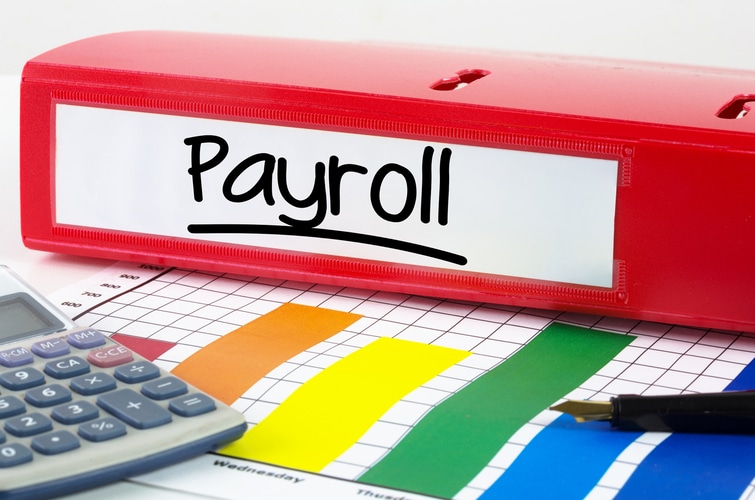Owning and managing pharmacies is hard work. A lot of expertise outside of pharmaceutical knowledge is needed for the business aspects - most of which isn't covered in pharmacy school.
The annual, monthly, and daily operations of pharmacy accounting is complex and unique. Managing purchasing, with tiers and rebates, as well as scripts, with fees, delayed payments, and other challenges and complications, can be difficult. Pharmacists also need to manage payroll for employees, and many other pharmacy accounting tasks, all of which are more specialized because of your industry.
To ensure you are collecting all the revenue you are owed for goods sold, have enough cash flow, and to maximize profitability, while you stay on top of other essential tasks, you need to have effective accounting systems in place.

Pharmacy Accounting Systems
While setting up effective systems when you open a new pharmacy, it is never too late to review your systems to improve profit margins and cut expenses.
Having effective and efficient systems allow you to leverage tax planning opportunities, as well as streamline and enhance your ongoing operations. There are a range of accounting areas to consider. Starting a checklist of what needs to be done daily, monthly, or annually can help.
Below are some of the tasks that need to be integrated into your systems. You can find ways to manage these in-house, but many owners of pharmacies prefer outsourcing these to expert accounting services providers.

Bookkeeping
The backbone of accounting, bookkeeping involves tracking all financial transactions, both incoming and outgoing. Ledgers are often used; a tool like Quickbooks helps streamline these processes. It is essential to ensure all records are accurate, to stay on top of your income, expenses, tax records, financial obligations and payments.
This includes daily point-of-sale numbers, and reconciliation with your bank account. It also includes tracking accounts payable transactions to ensure timely payments. A streamlined system, with a good workflow, and reconciled and synchronized numbers on a daily basis is critical.
Many pharmacies outsource bookkeeping services, to free up time for pharmacy-related work, and to ensure bookkeeping is kept up to date properly, so there aren't any issues later when trying to catch up.

Payroll
You will need a system to track employee hours, salary rates, calculate payroll taxes, and issue paycheques. A payroll strategy should be determined, as well, to create a general plan of whether you wish to attract top talent through top-of-range salaries, or offering midpoint salaries with better flexibility and benefits. Payroll remittances are due monthly by the 15th of each month. Having a good system will automatically calculate and deduct taxes, direct deposit net amounts to employees, and send remittances to the CRA.
Accounts Payables
A system must be set up to manage vendor accounts and accounts payables to track what you owe to each vendor, ensure you actually received what you were billed for, and pay bills on time.
Suppliers like Mckesson often have auto-fill setup, so as the pharmacy sells products, it is automatically ordered. As such, McKesson often withdrawals large sums twice a month to pay for inventory purchases. It is important to have extra funds in your bank account to be able to pay for these purchases and not constantly go into overdraft.
For new stores, suppliers like McKesson often give a grace period on opening orders before payment is due, typically 120 days. This gives new stores the opportunity to purchase opening inventory as an interest free loan. Tracking accounts payables becomes critical because you need to ensure you have the funds available to pay back McKesson by the end of the grace period.
Accounts Receivables
Accounts receivables, which can be complex for pharmacies managing ongoing customer accounts and insurance amounts, also need to be tracked, with accurate outstanding balances noted, so requests for payment can be made. Again, a tool like Quickbooks can help.
A lot of pharmacies give discounts to patients by reducing some or all of their co-pay amounts. Most of the time, pharmacy owners will reflect the discount at the POS but not in their Kroll or Fillware report. Having a good accounts receivables system from a specialized accountant can help you track the amount of discounts you are giving patients throughout the year.
If you're unhappy with the profitability of your store, the first place to look at is how much you discount at your store to show how much money you're leaving on the table.
It's challenging for a pharmacy to manage cash flow because the majority of claims are from Government plans, which can take 30-60 days to get paid. So while you have to spend cash up front to buy inventory, often you have to wait to get paid even after dispensing medication.
In addition, insurance plans will often deny a claim or reduce payment for a number of reasons, so tracking amounts owed is important.

Inventory Management
A concern unique to pharmacies is inventory management. While another type of business may have inventory, the added controls, requirements and other considerations that pharmacists need to address for drug inventories is much more rigorous and complex.
All drugs, pharmaceuticals, and other products must be scrupulously tracked and ordered as necessary, with checks and reconciliations performed. Transactions and price must also be recorded. Current drug inventories must match inventory records of what was purchased and paid to suppliers.
Tax Preparation and Planning
Tax Preparation
For both tax preparation and planning, you need to know the provincial and federal tax regulations that apply to you, as it varies by province. In doing so, you should be able to reduce your tax burden. Have a system in place to ensure tax returns are filed on time, with any necessary payments made, to avoid penalties.
Corporate tax and sales tax are completely different, many pharmacy owners struggle to understand the difference. Simply put, sales tax you charge to your customers on top of your prices and need to remit that to the government either monthly, quarterly, or annually; corporate tax you pay on any profit left in the business.
Tax Planning Strategies
To reduce the amount of tax you may owe, you need to plan ahead, to develop a tax planning strategy; consulting with an expert is recommended to help you determine how you can lower your business tax obligations and liabilities.
It's important to find an accountant that will actually give you tax advice, and not just file returns. You will pay more to get this type of service, but, when done right, clients save more in taxes than what they paid to work with that accountant.
Pharmacy is unique to other medical professionals, like doctors and dentists. There are a lot of strategies that pharmacists can use that other medical professionals cannot, so it's important to hire an accountant that understands pharmacy and knows these strategies. Otherwise you could be leaving money on the table.

Financials and Financial Planning
A business plan for a pharmacy owner is a must, just as it is for other businesses. Generating an income statement, balance sheet, and other reports on financials lets you know how you are doing, and provide insights to help you improve.
Informed Decision Making
Pharmacy owners can make more educated decisions with good financial reports. With better information, you can find ways to increase profits and eliminate unnecessary operating costs, to enhance overall profitability. It helps drive strategy for potential business growth, which is necessary to stay competitive.
The top stores in Canada have owners that are constantly on top of their numbers, looking at their numbers at least on a weekly or monthly basis.
Many owners shy away from this because pharmacy school didn't teach proper business fundamentals, and just want to focus on helping their patients.
A lot of accounting firms do not produce any reports throughout the year, only at year end when filing tax returns. A great accountant will not only help you to stay on top of your numbers, but will also take the time to help you understand what the numbers are telling you.
Outsource Pharmacy Accounting Services

Outsourcing your pharmacy accounting services lets you benefit from the experience of experts, and lets you focus on your core strength - providing superior pharmacy services.
Pharma Tax can help, with both personal and business financial and accounting services, helping our pharmacy clients pay less tax, and enjoy a growth in wealth and in the business.
- With The New Capital Gains Tax Changes for 2024, What are the Best Places to Tax Shelter My Money? - November 1, 2024
- Business Overhead Insurance: What it is & Why You Need It - October 18, 2024
- How Long Do I Need to Keep Receipts? - October 5, 2024


